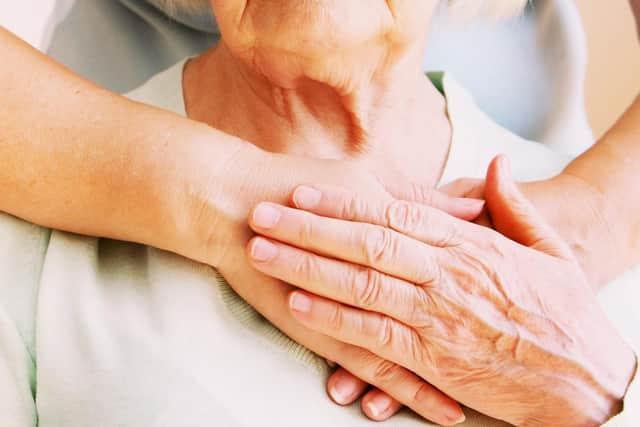Leeds voluntary groups praised for helping older people during coronavirus pandemic
and live on Freeview channel 276
A new report highlighted the great work of the Leeds Neighbourhood Networks, which is made up of 34 voluntary organisations across the city.
These include groups such as Bramley Elderly Action, AVSED, Swarcliffe Good Neighbours Scheme and others.
Advertisement
Hide AdAdvertisement
Hide AdEach of them play a key role in helping older people in their area live independent lives and play active parts in their local communities.


During the pandemic, this included doing things such as shopping, organising hot meal deliveries and picking up medicine for vulnerable and isolated people.
After the lockdown, they also created opportunities for older people to enjoy more face-to-face contact while following social distancing rules.
Notable examples of the work carried out during this period included the relaunch of an allotment project and the setting up of a mobile library service.
Advertisement
Hide AdAdvertisement
Hide AdThe report, jointly compiled by the Centre for Ageing Better charitable foundation and Sheffield Hallam University’s Centre for Regional Economic and Social Research, highlights how the community groups have acted as a lifeline for older people in the city over the last nine months.
It states that the value of these organisations has been underlined by the response to the Covid-19 crisis.
It also states that the pandemic has illustrated the need for national government to give councils the “adequate and flexible” funding required to sustain such initiatives.
Councillor Rebecca Charlwood, Leeds City Council’s executive member for health, wellbeing and adults, said: “The Leeds Neighbourhood Networks are a long-term success story for our city, so it’s heartening to see the work done by staff and volunteers being recognised in this way.
Advertisement
Hide AdAdvertisement
Hide Ad“Protecting and supporting older people has been a priority for the council throughout the pandemic and the tireless efforts of all those involved with the neighbourhood groups have contributed enormously to that.
“Their local knowledge and community contacts mean they have been perfectly placed to reach out and help our older residents cope with the difficulties that this year has brought.”
Anna Dixon, Centre for Ageing Better chief executive, said:
“The coronavirus has highlighted how important local support networks are, especially in times of crisis, and the vital role that trusted community organisations play in supporting people at risk.
“The Leeds Neighbourhood Networks are an excellent example of how councils and community organisations can work together to meet the needs of their communities. Their work demonstrates the value of investing in community infrastructure so it is there when it’s really needed.”
Advertisement
Hide AdAdvertisement
Hide AdElsewhere in the report, there is a focus on the willingness of the Leeds Neighbourhood Networks to adapt to changing circumstances, with some becoming community care hubs responsible for the co-ordination of voluntary action in their area.
There have also been productive link-ups with private sector companies, including supermarkets, pubs, cafes and takeaways.
There is praise for the practicality of the council’s Leeds Neighbourhood Networks funding model and how it has allowed the groups to tailor their work to the specific requirements of their patch during the pandemic.
The report concludes: “National government needs to provide adequate and flexible funding for local authorities and other local commissioners to develop and sustain social and community infrastructure such as [the Leeds Neighbourhood Networks].
"Ringfencing small proportions of physical infrastructure investments, such as that of the proposed national infrastructure bank, to be spent on community infrastructure is one way to achieve this.”